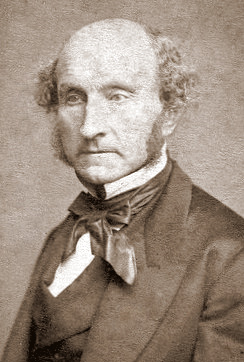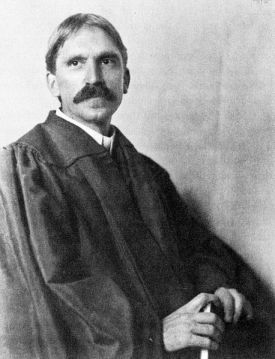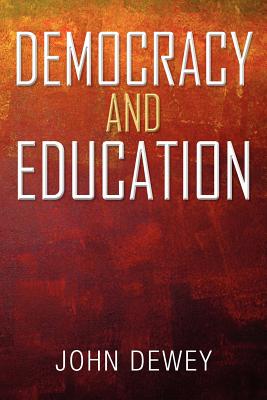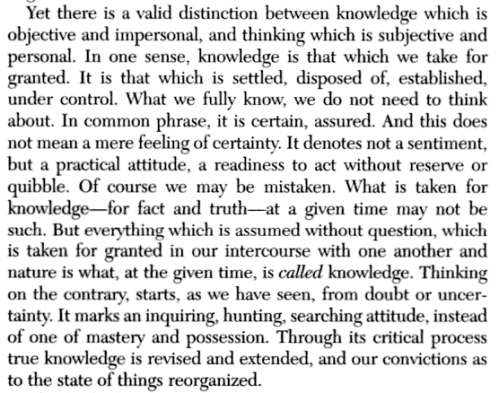Why are there so few women in philosophy? Maybe it is the content of the philosophical cannon, which is incredibly sexist, rather than merely the result of women’s delicate, empathetic minds, or the sexual aggressiveness of male philosophy professors. Maybe it’s not just the climate of philosophy, but also its content.
When discussions of women in philosophy are raised, the issue often turns to the ‘climate’ in which philosophy is taught (rampant sexual harassment, philosophers in positions of power who are not punished for harassing female students, etc.), or to the inadequacies of women as philosophers (lack of interest is abstract theory, unwillingness to engage in ‘aggressive’ debates, etc.). In short, these explanations tend to come in at the level of student preferences and weaknesses or teachers who make the climate inhospitable to women.
For example, from the 2009 version of this debate:
Helen Beebee, director of the British Philosophical Association, says one reason may be that women are turned off by a culture of aggressive argument particular to philosophy, which grows increasingly more pronounced at the postgraduate level. (The New York Times Ideas Blog “A Dearth of Women Philosophers”)
Another discussion focused on women’s inadequacy for philosophical discussion from The Philosopher’s Magazine also from 2009:
…Simon Baron-Cohen is a Professor of Developmental Psychopathology at Cambridge whose theory of mind characterises male minds as “systemising” (driven to analyse or construct systems) and female minds as empathising. “Philosophy is, as you know, the pursuit of logic and the analysis of concepts as logical systems,” he told me. “It therefore requires ‘systemising’ and all areas of systemising (mathss, computer science, physics, engineering, etc) show this male bias.” However he stresses that biological and cultural factors can both play a role in developing these empathising and systemising traits. (Brooke Lewis “Where are all the Women?“)
There are hundreds of examples of sexual harassment, gender-based dismissal, and other issues at the blog What is It Like to Be a Woman in Philosophy? The New York Times 2013 series on women in philosophy from the Stone floats a number of hypotheses (see end of this post for a brief summary of each). But all of these explanations focus on the ‘climate’ of philosophy departments and ignore the content of the cannon itself.
The Content of Philosophy
One thing that I think is sometimes overlooked in these discussions is an examination of what philosophers said about women. It was often very unkind and uncharitable (to put it mildly).
When I was an undergrad, studying ethics, I would *constantly* read things in which my gender was trashed by “the Great thinkers” such as Kant, Aristotle, Hegel, Rousseau and Plato. These passages were often part of the assigned readings, but were rarely discussed in class as though ignoring them would make them disappear or as though such sexism had no bearing on the credibility (and often stark hierarchies) built into their ethics. These passages were salient to me, but in class they were totally ignored.
It can be very demoralizing to read (and then re-read for understanding, and then re-read again for tests and essays) passages that reduce your gender to their reproductive function, and then reduce the reproductive contribution of your gender to something on par with a “flower pot” (Plato), or to hear that women provide the material cause while men provide the formal cause, with the latter treated as clearly more important (Aristotle), especially when the writers clearly think that women don’t contribute much other than reproduction. (So women are only good for reproduction, and our contribution to reproduction is not even that important!)
It is demoralizing to read “Great moral theorists” write that women are so delicate and emotional/irrational that they cannot be serious moral agents (let alone grasp difficult moral philosophy!) and should be confined to “passive citizenship” in which they are protected by the “active citizens” i.e. white, propertied, men (Kant). When one is then asked to write an essay where at least one of these views has to be defended against the others the process of writing the paper can be an assault on one’s self-respect (you mean I have to defend the view of someone who treats me like that???).
I coped with this issue during my undergrad by seeking out feminist reinterpretations, criticisms and discussions of these works. This helped me retain self-respect while doing the work required for a philosophy BA. None of these feminist works were included on the syllabus, however. This meant that doing a BA in philosophy was a lot more work for me than it would have been for many of my male peers who did not have to seek external sources to maintain self-respect in the face of blatant misogyny.
Feminist Philosophy is “Not Real” Philosophy
To make matters worse, even today, feminist philosophies are not considered “real philosophy” by many philosophers (including many female philosophers). Having the opportunity to take a course in feminist philosophies is often the first time that female students will have the chance to criticize and examine these racist, gendered and misogynistic things that have been said about women and non-Europeans. It is often the first time female students will read predominantly female authors, and it can make it seem like philosophy is “for” people like them after all. Reading criticisms of gendered concepts, gender hierarchies, and arguments about how a philosopher’s misogynistic views might, in fact, affect the content of his theory (rather than being merely peripheral) can be validating for those students who suspected as much when they were doing the original reading of the cannon.
When I have taught or TAed for feminist philosophy classes in the past, I have had a number of students express this kind of thing to me. Many women have written in their reviews of the class that it was the first time the read about “First Nations philosophies” or “Women’s views” or “African American philosophies” in a way that represented these views respectfully (rather than, say, talking about how women are not rational which comes up a lot in the history of philosophy). But classes in feminist philosophy are almost never required courses to complete a philosophy degree because they are not considered “core courses” for the discipline. Some departments don’t even offer any courses in feminist philosophy at all.
Conclusion
The result is that women and minorities are explicitly maligned and denigrated in the content of what we teach. Rarely is this denigration and disrespect raised in the context of ‘core’ philosophy courses (ethics, epistemology, metaphysics, ancient philosophy, the rationalists and the empiricists). Instead this sexism and racism is treated as though it were peripheral to the philosopher’s main view. Feminist philosophy and philosophy of race do raise criticisms of the gendered and racialized concepts philosophers have relied on in creating their theories, but these criticisms are themselves treated as peripheral and marginalized within the discipline as it is taught today.
Why are there so few women in philosophy? Possibly because we read texts that explicitly state that women can’t do philosophy. Professors rarely address these statements. And the sub-fields of philosophy that do address and probe these sexist and racist views are themselves treated as peripheral and marginal to the core of the discipline.
Note:
I started writing this post in 2010 when I read a blog post on Playtonic Dialogues, “Where my Philosophy Girls At?” I left a version of this comment at Playtonic Dialogues‘ post “What it is like to be a woman in philosophy.” At that time, there was a flurry of interest in the lack of women in philosophy. I never published this post, because I intended to improve it first.
Now, once again, the issue of women in philosophy is being raised, in part as a result of recent sexual harassment allegations in the field. The New York Times’ Opinionator Blog, ‘The Stone’ has recently completed a five-part series on women in philosophy (links and a brief description of each blog post are at the bottom of this post). So once again, this topic seems timely. That is why I am publishing it now.
Link Round-Up below the Fold











